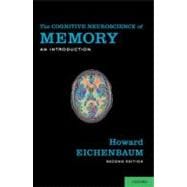
Note: Supplemental materials are not guaranteed with Rental or Used book purchases.
Purchase Benefits
What is included with this book?
| Preface to the Second Edition | p. vii |
| Introduction: Four themes in research on the neurobiology of memory | p. 1 |
| Connection: The cellular and molecular bases of memory | p. 27 |
| Neurons and simple memory circuits | p. 29 |
| Cellular mechanisms of memory: Complex circuits | p. 51 |
| Cognition: Is there a "cognitive" basis for memory? | p. 79 |
| Amnesia - learning about memory from memory loss | p. 85 |
| Exploring declarative memory using animal models | p. 111 |
| Windows into the workings of memory | p. 149 |
| Compartmentalization: Cortical modules and multiple memory systems | p. 193 |
| The cerebral cortex and memory | p. 197 |
| Multiple memory systems in the brain | p. 219 |
| A brain system for declarative memory | p. 235 |
| A brain system for procedural memory | p. 267 |
| A brain system for emotional memory | p. 291 |
| Consolidation: The fixation and reorganization of memories | p. 315 |
| Two distinct stages of memory consolidation | p. 317 |
| Working with memory | p. 351 |
| Final Thoughts | p. 381 |
| Glossary | p. 383 |
| References in figure captions | p. 393 |
| Index | p. 397 |
| Table of Contents provided by Ingram. All Rights Reserved. |
The New copy of this book will include any supplemental materials advertised. Please check the title of the book to determine if it should include any access cards, study guides, lab manuals, CDs, etc.
The Used, Rental and eBook copies of this book are not guaranteed to include any supplemental materials. Typically, only the book itself is included. This is true even if the title states it includes any access cards, study guides, lab manuals, CDs, etc.